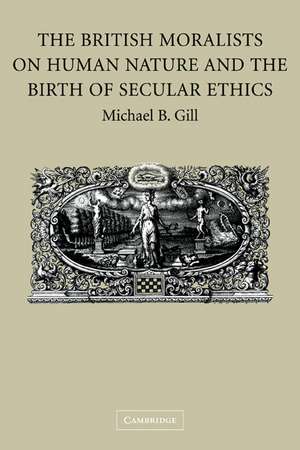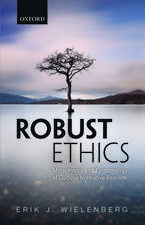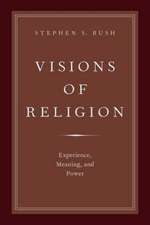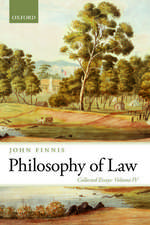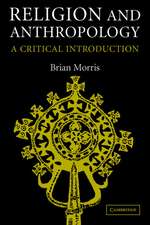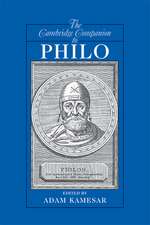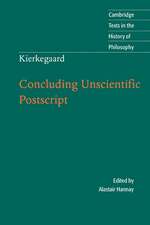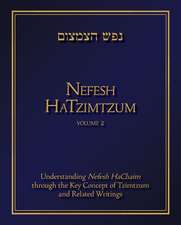The British Moralists on Human Nature and the Birth of Secular Ethics
Autor Michael B. Gillen Limba Engleză Paperback – 16 feb 2011
| Toate formatele și edițiile | Preț | Express |
|---|---|---|
| Paperback (1) | 350.02 lei 6-8 săpt. | |
| Cambridge University Press – 16 feb 2011 | 350.02 lei 6-8 săpt. | |
| Hardback (1) | 508.13 lei 6-8 săpt. | |
| Cambridge University Press – 30 iul 2006 | 508.13 lei 6-8 săpt. |
Preț: 350.02 lei
Nou
Puncte Express: 525
Preț estimativ în valută:
66.97€ • 70.12$ • 55.42£
66.97€ • 70.12$ • 55.42£
Carte tipărită la comandă
Livrare economică 05-19 aprilie
Preluare comenzi: 021 569.72.76
Specificații
ISBN-13: 9780521184403
ISBN-10: 0521184401
Pagini: 368
Dimensiuni: 152 x 229 x 21 mm
Greutate: 0.54 kg
Editura: Cambridge University Press
Colecția Cambridge University Press
Locul publicării:New York, United States
ISBN-10: 0521184401
Pagini: 368
Dimensiuni: 152 x 229 x 21 mm
Greutate: 0.54 kg
Editura: Cambridge University Press
Colecția Cambridge University Press
Locul publicării:New York, United States
Cuprins
Introduction; Part I. Whichcote and cudworth: 1. The negative answer of English Calvinism; 2. Whichcote and Cudworth's positive answer; 3 Whichcote and Cudworth on religious liberty; 4. Rationalism, sentimentalism, and Ralph Cudworth; 5. The emergence of non-Christian ethics; Part II. Shaftesbury: 6. Shaftesbury and the Cambridge Platonists; 7. Shaftesbury's Inquiry: a misanthropic faith in human nature; 8. The Moralists, a Philosophical Rhapsody; 9. A philosophical faultline; Part III. Hutcheson: 10. Early influences on Francis Hutcheson; 11. Hutcheson's attack on egoism; 12. Hutcheson's attack on moral rationalism; 13. A Copernican positive answer, an attenuated moral realism; 14. Explaining away vice; Part IV. Hume: 15. David Hume's new 'science of man'; 16. Hume's arguments against moral rationalism; 17. Hume's associative moral sentiments; 18. Hume's progressive view of human nature; 19. Comparison and contingency in Hume's moral account; 20. What is a Humean account, and what difference does it make?
Recenzii
This approach offers an uninterrupted presentation of the historical story, while still tendering to those interested in the many contemporary debates material for their consideration. I give this book a hearty recommendation for anyone with even a passing interest in the history of ethics. One need not be a scholar on these matters to enjoy and benefit from reading it....Michael Gill's book is also indispensable for the scholar. I find myself in awe of his accomplishments here, and his book will undoubtedly be a touchstone for future discussions of early modern moral thought."
Elizabeth S. Radcliffe Nortre Dame Philosophical Reviews
"Gill leads us to revise our understanding of the opposition between 'rationalism' and 'sentimentalism'...On the philological level, the work is very well documented and argued."
Laurent Jaffro, Journal of the History of Philosophy
"Gill's discussion is consistently lucid and insightful, examining difficult texts with a deft hand that rarely labors over the subject matter."
18th Century Scotland, Daniel Carey, National University of Ireland- Galway
Elizabeth S. Radcliffe Nortre Dame Philosophical Reviews
"Gill leads us to revise our understanding of the opposition between 'rationalism' and 'sentimentalism'...On the philological level, the work is very well documented and argued."
Laurent Jaffro, Journal of the History of Philosophy
"Gill's discussion is consistently lucid and insightful, examining difficult texts with a deft hand that rarely labors over the subject matter."
18th Century Scotland, Daniel Carey, National University of Ireland- Galway
Descriere
This volume uncovers the historical roots of naturalistic, secular contemporary ethics.
